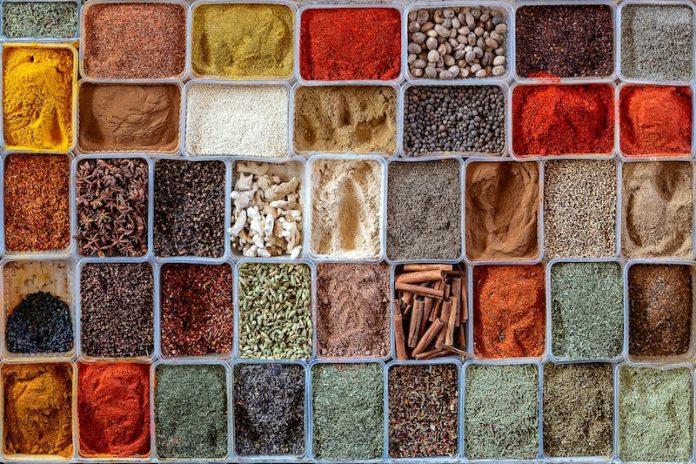
The gut microbiome is a bustling community of trillions of microorganisms living in our digestive system.
These tiny residents play a crucial role in our health, influencing everything from digestion to immune function.
As research deepens our understanding of the microbiome, many are curious about how everyday diet choices, like the use of herbs and spices, can impact these microscopic communities.
Herbs and spices have been celebrated through history not just for their flavor, but for their health benefits. Modern science is now catching up with traditional knowledge, examining how these plant-based additions to our meals can promote a healthier gut microbiome.
One of the foundational pieces of this puzzle is the anti-inflammatory properties of many common herbs and spices.
For example, turmeric, a bright yellow spice often found in curries, contains curcumin, a compound that has been shown to reduce inflammation in the body. Chronic inflammation can harm gut health, so ingredients that combat inflammation also support the microbiome.
Another way herbs and spices may influence the gut microbiome is through their antimicrobial properties, which can help balance harmful and beneficial bacteria in the gut.
For instance, garlic has been shown to act as a natural antibiotic, reducing the number of harmful bacteria without significantly impacting beneficial ones. Similarly, cinnamon can fight several types of harmful bacteria while fostering an environment where good bacteria can thrive.
Fiber in spices like cumin and coriander supports good bacteria by providing the nutrients they need to grow. When these bacteria ferment the fiber, they produce short-chain fatty acids that benefit gut health, reduce inflammation, and even help regulate blood sugar levels.
Clinical trials also shed light on the gut-modifying potentials of spices. A study published in the Journal of Nutritional Biochemistry found that ginger could help enhance the production of healthy gut bacteria and improve the intestinal barrier that protects against toxins and pathogens.
Moreover, peppermint, often used to soothe stomach issues, has been found to relieve symptoms of irritable bowel syndrome (IBS), a common gut disorder.
This relief is thought to be due to peppermint’s ability to relax the muscles of the digestive tract and its antimicrobial properties, which can modify the gut flora favorably.
An interesting avenue of research is exploring the prebiotic potential of herbs like chicory and dandelion. Prebiotics are substances that feed good bacteria in the gut.
These herbs contain inulin, a type of fiber that good bacteria use as fuel, promoting a healthier, more balanced gut microbiome.
Despite these promising findings, it’s important to remember that the impact of herbs and spices on the gut microbiome can vary greatly among individuals.
Factors like the overall diet, genetics, and existing health conditions play significant roles in determining how one’s microbiome will react to different herbs and spices.
In conclusion, the relationship between herbs and spices and the gut microbiome is an exciting area of health and nutrition.
While more research is needed to fully understand the specific mechanisms and effects, incorporating a variety of herbs and spices into your diet is likely a tasty and beneficial choice for gut health.
So next time you cook, reaching for that extra sprinkle of cinnamon or dash of turmeric might be doing more than just enhancing the flavor of your food—it might also be supporting your gut microbiome, contributing to your overall health.
Follow us on Twitter for more articles about this topic.
Copyright © 2024 Scientific Diet. All rights reserved.





